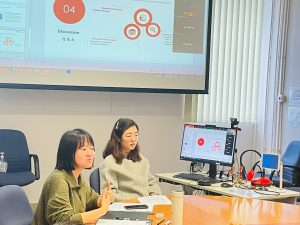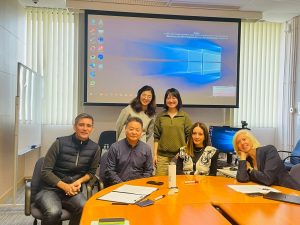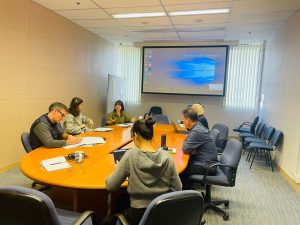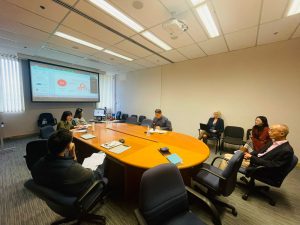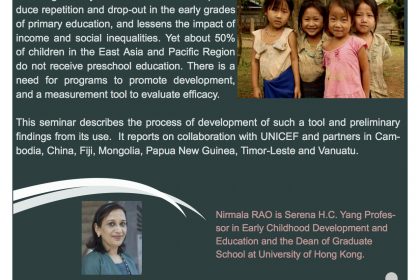On February 2nd, the Comparative Studies in Educational Traditions SIG held its first seminar of the year 2024. The seminar featured Dr. Zhu Yanzhen, a PhD graduate from the Faculty, who presented her doctoral research on Chinese intellectual traditions. Dr. Zhu shared her insights on constructing an analytical framework for interpreting Chinese intellectual traditions during the seminar. The term “intellectual tradition” is frequently used but rarely defined, leaving room for further theoretical and empirical inquiries. Dr. Zhu’s theoretical inquiry began with a comprehensive examination of the definition of tradition and further explored the theories of Edward Shils and Michael Polanyi. The inquiry was deepened with the inclusion of non-Western intellectual histories and traditional Chinese resources.
Dr. Zhu’s developed analytical framework defines Chinese intellectual traditions as patterns that guide the actions of Chinese intellectuals, both explicitly and tacitly. The framework also suggests that an individual’s real experiences can serve as a starting point for exploring intellectual traditions. Dr. Zhu’s presentation shed light on the complex topic of intellectual traditions and provided a valuable framework for interpreting Chinese intellectual traditions. Her approach emphasizes the importance of considering non-Western intellectual histories and traditional resources when exploring intellectual traditions.
The seminar was attended in person by Prof. Yang Rui, Prof. Nutsa Kobakhidze, Prof. Liz Jackson, Prof. Jeremy Rappleye and Prof. Yang Lili. Additionally, participants from around the world joined online. The seminar was facilitated by SIG secretary Fan Lijun and CERC secretary Tian Renxiang. We look forward to more seminars in 2024.


